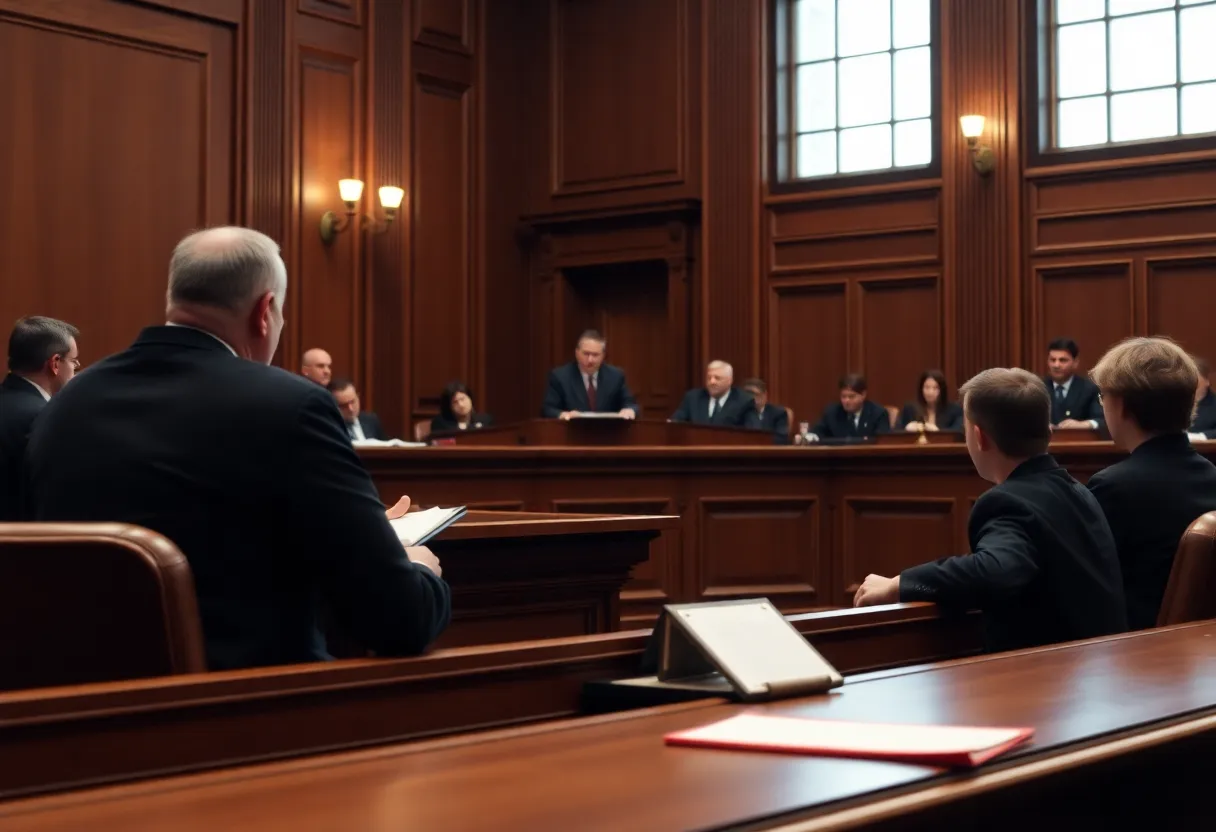News Summary
A federal appeals court ruled that Louisiana’s law requiring the display of the Ten Commandments in public schools is unconstitutional. The decision upheld a previous injunction against the law, which was challenged by families arguing it violated the separation of church and state. Louisiana’s Attorney General plans to appeal the ruling, asserting that it doesn’t reflect the views of the broader educational community. This legal saga may escalate to the U.S. Supreme Court, echoing wider debates on religion in public education across the nation.
Lawsuit Against Ten Commandments Display in Louisiana Schools Ends in Unconstitutional Ruling
In a noteworthy legal development, a federal appeals court has decided that Louisiana’s law, which mandated the display of the Ten Commandments in every public school and university classroom, is “plainly unconstitutional.” This ruling, which came from a panel of three judges in the U.S. Court of Appeals for the Fifth Circuit, unanimously upheld an earlier decision by a lower court that had placed a preliminary injunction against the law.
A Look Back at the Law
Last year, Louisiana passed legislation requiring the Ten Commandments to be shown prominently in classrooms. This law was groundbreaking in a sense, being the first attempt to reinstate similar legislation after the U.S. Supreme Court struck down a comparable Kentucky law back in 1980 for violating the constitution. In their ruling, the judges noted that the requirements outlined in Louisiana’s law were “materially identical” to the previously banned Kentucky legislation.
Judges from Various Presidential Eras
What makes this panel particularly interesting is that it comprises judges who were appointed by Presidents Biden, Clinton, and Bush. The judges included Irma Carrillo Ramirez, James L. Dennis, and Catharina Haynes, a mix that adds a diverse political perspective to the ruling.
Families Unite Against the Law
The challenge against this law was spearheaded by nine families from various religious backgrounds, all of whom have children enrolled in public schools. Their argument hinged on the belief that this law deliberately violated the long-held principle of separation of church and state. They were represented by the American Civil Liberties Union of Louisiana, who contended that the law promoted a “state-preferred version of Christianity,” thereby potentially alienating students not of the Christian faith.
Voices from the Community
Among the plaintiffs, Rev. Darcy Roake shared sentiments indicating that religious education is best left to families and faith communities—stating that it shouldn’t be a role taken on by government institutions.
Attorney General’s Response
On the flip side, Louisiana’s Attorney General, Liz Murrill, has publicly expressed her strong disapproval of the court’s decision. She has stated her intention to appeal the ruling to the full Fifth Circuit and possibly take it as high as the U.S. Supreme Court. The Attorney General believes that the ruling only impacts specific parishes involved in the lawsuit, which she claims does not reflect the views of Louisiana’s broader public educational landscape.
A Win for Civil Liberties Advocates
For civil liberties advocates, this ruling is seen as a significant victory. Many argue that such displays in schools can create a sense of alienation among non-Christian students—a concern that resonates deeply within communities striving for inclusivity and equal representation.
Supporters of the Law
Supporters of the Ten Commandments display characterize it as historical and foundational to the judicial system of the United States. In contrast, critics remain adamant that the law’s primary intent was religious in nature. The original ruling from the district court stated that the mandate was unconstitutional and ordered state education officials to stop enforcing the law.
The Governor Jumps Into the Fray
Louisiana’s Governor, Jeff Landry, who signed the law into effect, stands firmly alongside the Attorney General and backs the appeal process. He emphasizes the historical significance of the Ten Commandments as a reasoning behind pursuing this legal battle.
The Bigger Picture
Looking ahead, legal experts suggest that this case could escalate to the U.S. Supreme Court, possibly leading to significant challenges against established precedents surrounding religion in public education. Interestingly, similar legal challenges related to comparable laws have now emerged in other Republican-led states, such as Arkansas and Texas, indicating a nationwide discourse on this divisive issue.
Conclusion
This recent court ruling has rekindled conversations about the role of religion in public institutions, particularly in regard to the First Amendment’s establishment clause. Those impacted will be watching with bated breath as this legal saga unfolds, eager to see how it may shape future policies and legislative actions across the country.
Deeper Dive: News & Info About This Topic
- The New York Times
- The Guardian
- NBC News
- Reuters
- Wikipedia: Separation of Church and State
- Encyclopedia Britannica: First Amendment

Author: STAFF HERE AUGUSTA WRITER
The AUGUSTA STAFF WRITER represents the experienced team at HEREAugusta.com, your go-to source for actionable local news and information in Augusta, Richmond County, and beyond. Specializing in "news you can use," we cover essential topics like product reviews for personal and business needs, local business directories, politics, real estate trends, neighborhood insights, and state news affecting the area—with deep expertise drawn from years of dedicated reporting and strong community input, including local press releases and business updates. We deliver top reporting on high-value events such as Arts in the Heart Festival, Westobou Festival, and Masters Week. Our coverage extends to key organizations like the Augusta Metro Chamber of Commerce and Greater Augusta Arts Council, plus leading businesses in manufacturing and healthcare that power the local economy such as Textron Specialized Vehicles, Cardinal Health, and Nutrien. As part of the broader HERE network, including HEREAtlanta.com and HERESavannah.com, we provide comprehensive, credible insights into Georgia's dynamic landscape.


